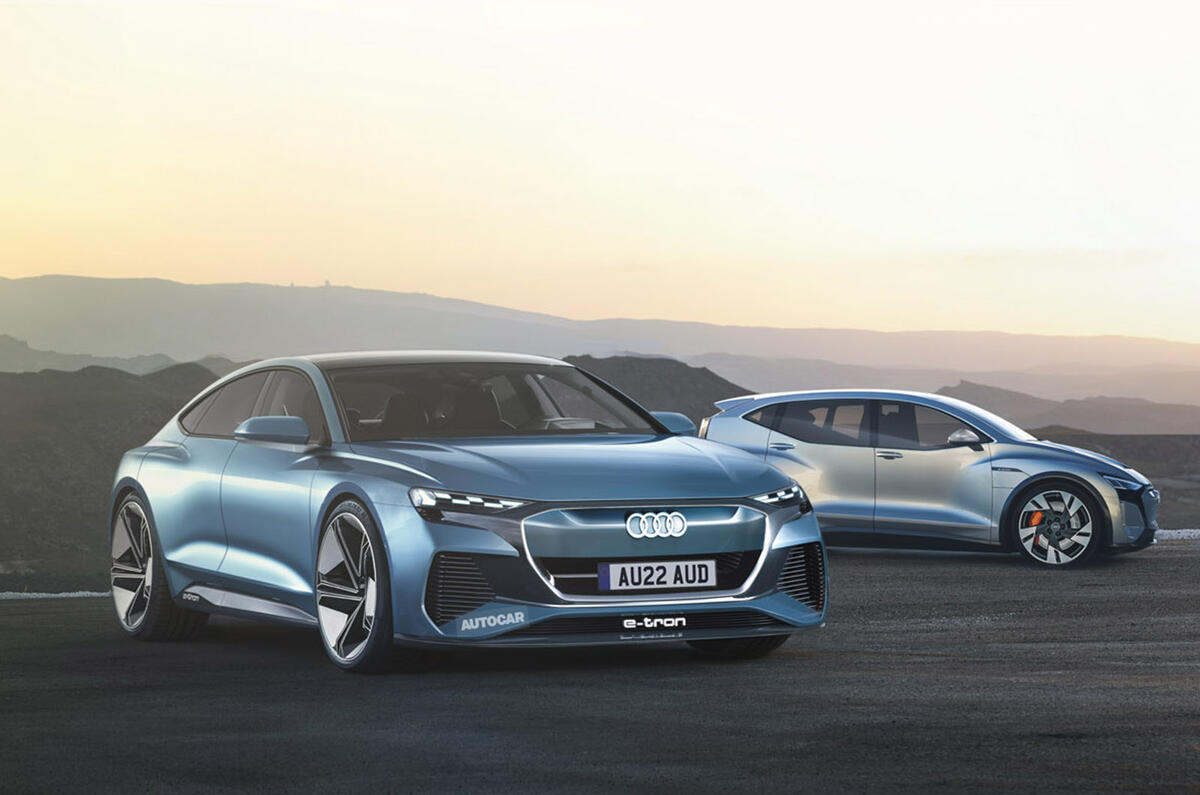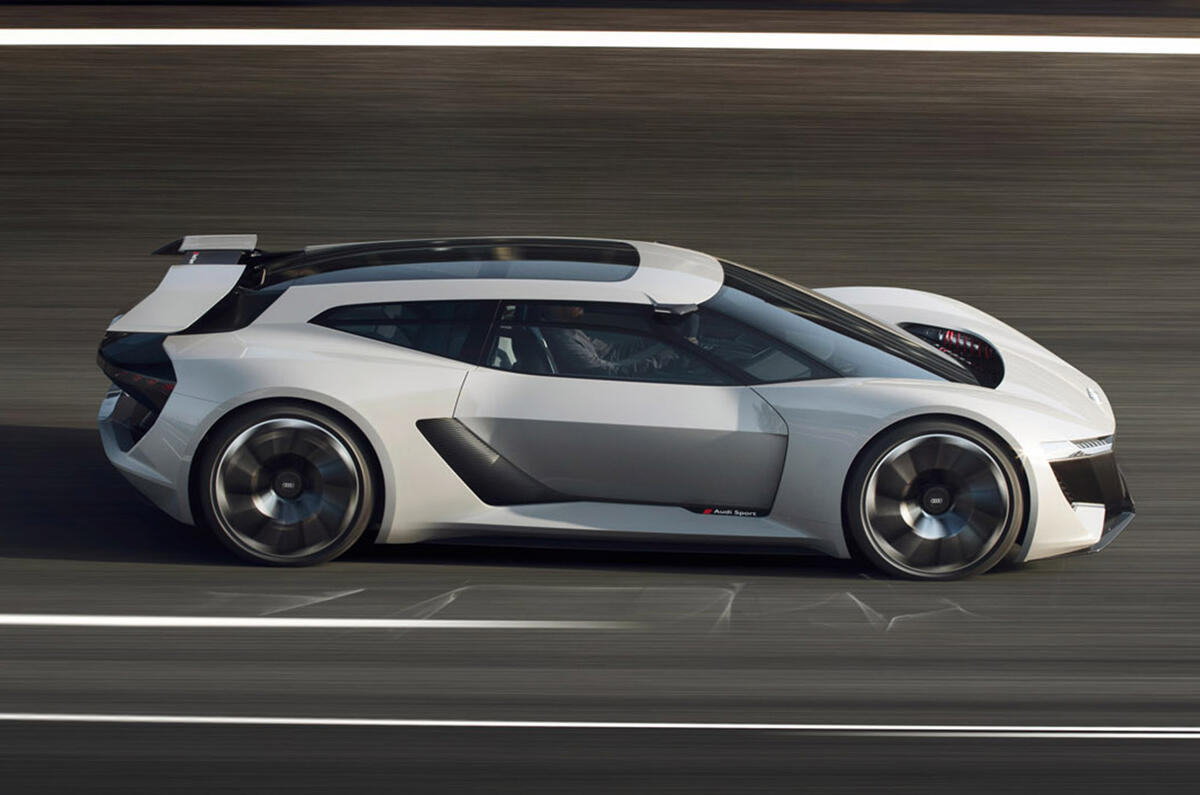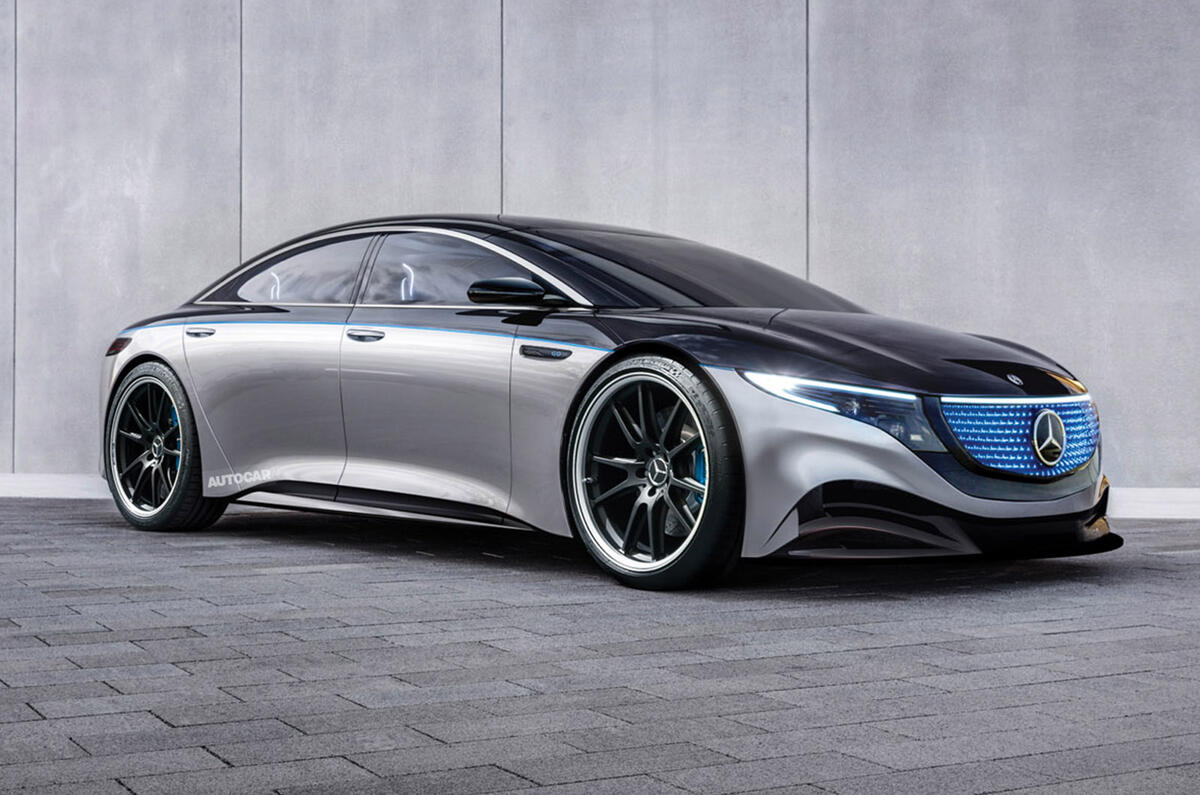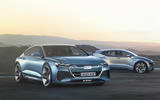Audi is aiming to put itself at the head of the electric luxury car ranks with a new flagship model being developed by an in-house working group called Artemis.
Described as “a highly efficient electric car that is scheduled to be on the road as early as 2024”, the advanced Audi is an extension of the Aicon project showcased at the 2017 Frankfurt motor show.
The new electric flagship is set to be a direct rival to the upcoming Mercedes-Benz EQS and Jaguar XJ and have the latest in electric drivetrain, battery cell and autonomous driving technology. It will also have 5G connectivity functions, including extensive use of ‘car-to-X’ features, augmented reality and over-the-air upgrades.
The new model has the internal codename E6 and is in the early stages of development. Insiders suggest it will take the form of a sporting saloon or liftback. It is claimed to mirror the current Audi A7 in external dimensions but offer the internal space of the larger A8. Sources at Audi’s Ingolstadt HQ in Germany suggest it could take the A9 E-tron name into production.
Once launched, it will act as a technical showcase for up to 75 electric cars and 60 plug-in hybrids already planned by Volkswagen Group brands such as Audi, Bentley, Lamborghini, Porsche, Seat, Skoda and Volkswagen as part of its €60 billion (£53.8bn) electrification strategy through to 2029.
Audi has already revealed plans to launch up to 20 pure-electric and 10 plug-in hybrid models in a programme for which it has set aside up to €12bn (£10.8bn) of its planned €37bn (£33.1bn) R&D spend through to the end of 2024.
The Artemis working group is central to the plans of new Audi chairman Markus Duesmann to see the maker reclaim its reputation for technical leadership. Artemis will operate hand in hand with Audi’s regular development department as well as engineers and software experts from the wider group to “quickly and unbureaucratically create technologies for electric and highly automated driving”.



















Join the debate
Add your comment
2024? What a joke.
2024? What a joke.
Get Lost
Yawn
Yawn
Please make affordable EV’s for the masses
Even the little Honda and VW UP electric cars are almost twice the price of an equivalent petroleum model.
The great unwashed deserve an affordable EV.
Enough of these bloated high performance EV techno beasts!
Thekrankis wrote:
It doesn't work like that, you can't simply wish a product into existence, it is a difficult combination of the availibility of technology, the fitness of the organisation, the economics of the segement and your production system and the publics view of the car manufacturer.
This is a bit like asking why everyone can't just make a Ferrari.
The lower price a vehicle is the slimmer the margins are and the more important the cost of the battery is a much higher proportion of the cost of the vehicle. You have to produce a great deal of them to recoupe your investment and the more you need to produce the further into expensive capital equipment it pushes you.
If you design to a low price point like the Leaf or the Zoe then you end up in the position of producing a car which is much less functional than an equivilent price ICE vehicle and thus limit your market to people who are specifically after an electric car.
Hence if you are trying to produce a high volume compelling electric car as your company's first electric car you are in the position of essentially betting the company to do something that is very hard which is also something that your company isn't particulary proficient at.
By going for a higher price vehicle it is much easier to hide cost uncertainty on any given component and of course you don't need to make as many to pay back your development costs. Most importantly large batteries equal low marginal cost of additonal performance allowing you to price against more expensive ICE vehicles.
Finally its generally a good idea to try to come up with a way to avoid competing directly against Tesla with your first vehicle.
Torque Stear wrote:
Yeah.
I think we all know that.